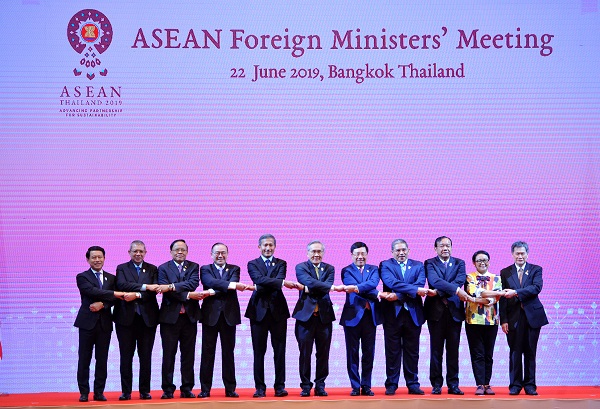
Jakarta, (Asian independent) The entry into force of the Regional Comprehensive Economic Partnership (RCEP) agreement will open up opportunities to catalyse the expansion of regional trade and investment much needed for economic recovery amid Covid-19, said Secretary-General of the Association of Southeast Asian Nations (ASEAN), Dato Lim Jock Hoi.
The ASEAN Secretariat announced in November that the RCEP agreement would enter into force on January 1, 2022, as it had received instruments of ratification from six ASEAN countries, namely Brunei, Cambodia, Laos, Singapore, Thailand and Vietnam as well as from four non-ASEAN signatory states of Australia, China, Japan and New Zealand, Xinhua news agency reported.
In a recent written interview with Xinhua, Lim said RCEP demonstrates the shared commitment of ASEAN, China and other parties to a multilateral trading system. Signed in November 2020, RCEP is currently the largest free-trade agreement in the world, connecting ASEAN and major global economies, including China, South Korea, Japan, Australia and New Zealand.
He said that RCEP reinforces regional economic integration by expanding common accumulative rules of origin, simplified customs procedures, trade facilitation and coherent trade rules that provide greater transparency, fairness and predictability for businesses.
“All these will translate into a significant reduction of trade costs and processing time for ASEAN businesses, especially micro, small and medium enterprises,” which will have a greater chance of integration into the regional and global supply chains, he added.
Lim stressed that after the implementation of the RCEP agreement, each party will have to transform its regulatory framework accordingly, and the business community needs to be equipped with capability, skills and knowledge about how to seize opportunities to enhance their competitiveness.
In 2021, China and ASEAN agreed to elevate their bilateral relations to a comprehensive strategic partnership, which the Secretary-General said not only marks an important milestone in ASEAN-China relations, but is expected to shape a new landscape and momentum for economic cooperation in bilateral relations between ASEAN and China in many years to come.
With a new landscape in prospect, Lim hoped that ASEAN and China will work more closely together to inject resilience in their economic and trade linkages.
He added that both sides should revitalise the new ASEAN-China economic relationship by harnessing the potential of technological advancement as the new driver for growth and joining coordination efforts to address common challenges such as climate change.







